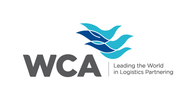

CB7u—Intro to U.S. Customs Brokerage, Part 7: Trade Agreements and Supporting Documentation
Subscriber price: $145.00, Non-subscriber price: $189.00
Estimated total study time: 10 hours 28 minutes
![]()
This is the seventh of the nine-part series of introductory courses in the practical work of U.S. customs brokerage. This course is designed to give a general overview of each trade agreement and the supporting documentation required. Customs Brokers must learn how to properly recognize and assess whether special treatment is in order based on the country of origin and understand when to question the information. Customs brokers must also understand the ramifications of incorrect processing.
Important: This course can be taken out of sequence if so desired.
Note: The actual processing of a customs entry is covered in Part 9 of this introductory course series.
Introduction to U.S. Trade Agreements
Trade agreements help companies compete more easily in the global marketplace through reduced or duty-free treatment along with other provisions. The specifics of each agreement varies and there are many types of trade agreements. This lesson provides access to the glossary and resourses to research information when necessary.
(Estimated study time: 58 minutes)
- For Best Results
- Overview of Trade Agreements and Their Significance in the Global Marketplace
- Types of Trade Agreements
- General Trade Agreements
- Customs Unions
- Preferential Trade Agreements
- Free Trade Agreements
- Introduction to U.S. Trade Agreements
- Introduction to U.S. Preferential Trade Agreements (PTAs)
- Introduction to U.S. Free Trade Agreements
Recognizing U.S. Trade Agreements
This lesson covers the general requirements for Customs Entry under Trade Agreements. Beginning with the background of how they were initiated, how to tell if they apply to an HTSUS classification and general requirements.
(Estimated study time: 1 hour 24 minutes)
- Introduction
- Trade Agreement Eligibility Requirements
- General Requirements for Special Treatment after Import
- HTSUS Duty Columns
- Special Tariff Treatment Programs
- Importers Responsibility to Provide Proof of Applicability for Preferential Trade; Recordkeeping
Other U.S. Trade Agreements: Insular Possessions, FAS, Palestine and QIZ, Nepal TPP, and Japan
This lesson targets trade agreements and their document requirements pertaining to insular possessions, the Compact of Free Association (FAS), products of the West Bank, Gaza Strip and Qualifying Industrial Zones, the Nepal Trade Preference Program (TPP) and the trade agreement between the U.S. and Japan.
(Estimated study time: 1 hour 2 minutes)
- Introduction to Other U.S. Trade Agreements
- Customs Territories of the United States
- U.S. Customs Territories Overview
- Puerto Rico Products Documentation Requirements
- Insular Possessions of the United States
- Insular Possessions Overview
- Insular Possessions Products Documentation Requirements
- Compact of Free Association or Freely Associated States (FAS)
- Compact of Free Association Overview
- Freely Associated States (FAS) Documentation Requirements
- Products of the West Bank, the Gaza Strip or a Qualifying Industrial Zone
- West Bank, Gaza Strip and Qualifying Industrial Zones (QIZ) Overview
- Documentation for GAZA, West Bank, or Qualifying Industrial Zone
- Nepal Trade Preference Program (NTPP) and Documentation
- Trade Agreement between the United States and Japan
- U.S.-Japan Trade Agreement Overview
- U.S.-Japan Trade Agreement Documentation Requirements
U.S. Preferential Trade Agreements: AGOA and GSP
Some goods have a condition that must be met in order to be imported duty free or with a reduced duty rate. In this lesson we will talk about some of the regulations concerning the African Growth and Opportunity Act. Certain conditions must be met for importing at the preferential duty rate.
(Estimated study time: 1 hour 6 minutes)
- Introduction
- Generalized System of Preferences (GSP) Overview
- Status of the Generalized System of Preferences (GSP); Expiration and Retroactive Renewal
- Generalized System of Preferences Documentation Requirements
- African Growth and Opportunity Act (AGOA)
- African Growth and Opportunity Act (AGOA) Background
- Articles are Designated as Eligible for the African Growth and Opportunity Act (AGOA)
- Identifying Articles under AGOA in the Tariff Schedules and Beneficiary Countries
- African Growth and Opportunity Act (AGOA) and Section 201, 232, 301
- African Growth and Opportunity Act (AGOA) Documentation Requirements
- If AGOA is not Claimed at Entry
- References for AGOA
- African Growth and Opportunity Act (AGOA) Tariff Preference Level (TPL)
U.S. Preferential Trade Agreements: Caribbean Basin and Haiti
Some goods have a condition that must be met in order to be imported duty free or with a reduced duty rate. In this lesson we will talk about some of the regulations concerning the Caribbean Basin Initiative and related trade agreements such as the Caribbean Basin Economic Recovery Act (CBERA), the Caribbean Basin Trade and Partnership Act (CBTPA) and the Haitian Hemispheric Opportunity through Partnership Encouragement Act (HOPE Act). Certain conditions must be met for importing at the preferential duty rate.
(Estimated study time: 53 minutes)
- Introduction
- Caribbean Basin Initiative (CBI)
- Caribbean Basin Initiative Overview
- General Note 7—Products of Countries Designated as Beneficiary Countries for Purposes of the Caribbean Basin Economic Recovery Act (CBERA)
- Caribbean Basin Economic Recovery Act (CBERA) Documentation Requirements
- General Note 17—Products of Countries Designated as Beneficiary Countries under the United States-Caribbean Basin Trade Partnership Act of 2000 (CBTPA)
- Caribbean Basin Trade Partnership Act (CBTPA) Documentation Requirements
- Haitian Hemispheric Opportunity through Partnership Encouragement Act of 2006 (HOPE Act)
- HOPE Act Overview
- HOPE Act Documentation Requirements
- Haiti Earned Import Allowance Program
- HOPE Act Tariff Preference Level (TPL)
- Caribbean Basin Trade Partnership Act (CBTPA) Tariff Preference Level (TPL)
U.S. Free Trade Agreements: CAFTA-DR and Australia
Some goods have a condition that must be met in order to be imported under a free trade agreement. In this lesson we will talk about some of the regulations concerning the Dominican Republic-Central America-United States Free Trade Agreement (CAFTA-DR) and the U.S.-Australia Free Trade Agreement.
(Estimated study time: 54 minutes)
- Introduction
- Dominican Republic-Central America-United States Free Trade Agreement (CAFTA-DR)
- CAFTA-DR Overview
- CAFTA-DR Free Trade Agreement Documentation Requirements
- Central America-Dominican Republic-U.S. Free Trade Agreement (CAFTA-DR) Tariff Preference Level (TPL)
- United States-Australia Free Trade Agreement (UAFTA)
- U.S.–Australia Free Trade Agreement (UAFTA) Overview
- U.S.-Australia Free Trade Agreement Documentation Requirements
- U.S.-Australia Free Trade Agreement (UAFTA) Tariff Rate Quota (TRQ)
U.S. Free Trade Agreements: Bahrain, Chile and Colombia
This lesson provides awareness of the three U.S. Free Trade Agreements for Bahrain, Chile and Colombia and their document requirements to claim free trade status at entry.
(Estimated study time: 41 minutes)
- Introduction
- United States-Bahrain Free Trade Agreement (UBFTA)
- U.S.-Bahrain Free Trade Agreement (UBFTA) Overview
- Bahrain Quota Tariff Preference Level (TPL) and Tariff Rate Quota (TRQ)
- U.S.-Bahrain Free Trade Agreement Documentation Requirements
- United States-Chile Free Trade Agreement (UCFTA)
- U.S.-Chile Free Trade Agreement (UCFTA) Overview
- U.S.-Chile Free Trade Agreement (UCFTA) Documentation Requirements
- U.S.-Chile Free Trade Agreement (UCFTA) Tariff Preference Level (TPL)
- United States-Colombia Trade Promotion Agreement
- U.S.-Colombia Trade Promotion Agreement Overview
- U.S.-Colombia Trade Promotion Agreement Documentation Requirements
- U.S.-Colombia Trade Promotion Agreement (CTPA) Tariff Rate Quota (TRQ)
U.S. Free Trade Agreements: Israel, Jordan, Korea and Morocco
This lesson provides awareness of the each of the four bilateral trade agreements between the U.S. and Israel, Jordan, Korea, and Morocco and their document requirements to claim free trade status at entry.
(Estimated study time: 1 hour 3 minutes)
- Introduction
- United States-Israel Free Trade Area (ILFTA)
- U.S.-Israel Free Trade Area Implementation Act of 1985 (ILFTA)
- U.S.-Israel Free Trade Area (ILFTA) Documentation Requirements
- Israel Free Trade Area (ILFTA) Tariff Rate Quota (TRQ)
- United States-Jordan Free Trade Area Implementation Act
- U.S.-Jordan Free Trade Area Overview
- U.S.-Jordan Free Trade Area Documentation Requirements
- United States-Korea Free Trade Agreement (UKFTA)
- U.S.-Korea Free Trade Agreement (UKFTA) Overview
- U.S.-Korea Free Trade Agreement Documentation Requirements
- U.S.-Korea Free Trade Agreement (UKFTA) Tariff Preference Level (TPL)
- United States-Morocco Free Trade Agreement (UMFTA)
- U.S.-Morocco Free Trade Agreement (UMFTA) Overview
- U.S.-Morocco Free Trade Agreement (UMFTA) Documentation Requirements
- U.S.-Morocco Free Trade Agreement (UMFTA) , Tariff Rate Quota (TRQ) and Safeguard Measures
U.S. Free Trade Agreements: Oman, Panama, Peru, and Singapore
This lesson provides awareness of the each of the four bilateral trade agreements between the U.S. and Oman, Panama, Peru, and Singapore and their document requirements to claim free trade status at entry.
(Estimated study time: 1 hour 1 minute)
- Introduction
- United States-Oman Free Trade Agreement (UOFTA)
- U.S.-Oman Free Trade Agreement (UOFTA) Overview
- U.S.-Oman Free Trade Agreement (UOFTA) Documentation Requirements
- United States-Panama Trade Promotion Agreement
- U.S.-Panama Trade Promotion Agreement Overview
- U.S.-Panama Trade Promotion Agreement Documentation Requirements
- Panama Trade Promotion Agreement (PATPA) Tariff Preference Level (TPL)
- U.S.-Peru Trade Promotion Agreement
- U.S.-Peru Trade Promotion Agreement Overview
- U.S.-Peru Trade Promotion Agreement Documentation Requirements
- Peru Trade Promotion Agreement (PTPA) Tariff Preference Level (TPL)
- United States-Singapore Free Trade Agreement (SFTA)
- U.S.-Singapore Free Trade Agreement (SFTA) Overview
- United States-Singapore Free Trade Agreement Documentation Requirements
U.S. Free Trade Agreements: North America (USMCA)
Trade agreements have conditions for importing that must be met in order to receive the free or reduced duty rate. Here we introduce the most common, the United States Mexico Canada Agreement (USMCA).
(Estimated study time: 1 hour 27 minutes)
- Introduction
- History and Purpose of USMCA
- Benefits and Challenges of USMCA Participation
- USMCA Tariff Preferences and How They Work
- HTSUS Duty Columns
- Finding the USMCA Tariff Rates and Quotas for Specific Products and Countries
- Why the Rules of Origin are Important
- Non-Originating vs. Originating Material
- USMCA Origin Certification
- Language
- Scope
- Completion of Origin Certification
- When a Certification of Origin is Not Required
- Importers' Obligations
- The General Rules of Origin
- USMCA Entry and Refund Processing
- Claiming USMCA preferential treatment
- USMCA Claims After Importation
- U.S.-Mexico-Canada Agreement (USMCA) Tariff Preference Level (TPL) and Tariff Rate Quota (TRQ)
- Penalties and Liabilities for Non-Compliance
- Penalties
- Denial of Benefits